Member

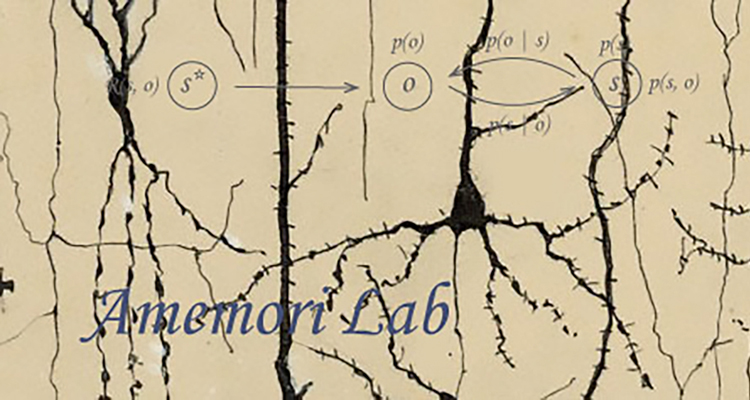
PI/Associate Professor
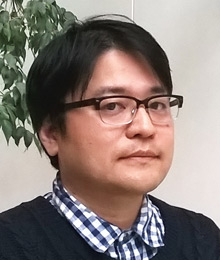
Ken-ichi Amemori
PI/Associate Professor
After starting his research in the field of computational neuroscience, he is now engaged in the field of primate neurophysiology. I have been studying the anterior cingulate cortex, prefrontal cortex, and basal ganglia of macaque monkeys. Others are interested in emotions, decision making, and value judgment. The details of the research are explained on the Research page.
- Biography
- 2020-Present Associate Professor / Principal Investigator, Associate Professor, Advanced Research Center for Human Biology, Graduate School of Advanced Studies, Kyoto University
2017-2020 Kyoto University White Eye Center / Primate Research Institute Associate Professor
2009-2017 Massachusetts Institute of Technology McGovern Institute for Brain Research Research Scientist
2005-2009 Massachusetts Institute of Technology McGovern Institute for Brain Research Postdoctoral Associate / Fellow
2002-2005 Assistant Professor, Graduate School of Medicine, Hokkaido University
2001 Completed the doctoral program at the Graduate School of Information Science, Nara Institute of Science and Technology
1997 Graduated from Faculty of Comprehensive Human Studies, Kyoto University
Assistant Professor
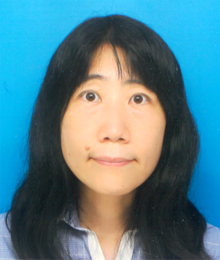
Rikako Kato
Assistant Professor
In my school days, I was fascinated by the beautiful theory of neural circuit to generate eye movements in the brainstem like logical and methodical circuit boards on a personal computer. I selected the neurophysiology as my research field. My aim now is to construct a beautiful theory of dynamically changing neural circuits for our learning through our experiences.
- Biography
- After completing my doctoral studies at the University of Tsukuba Graduate School of Medicine (2003), I spent two years at the College de France studying the driving pathways of saccades (2003-2005). After returning to Japan, I worked at the Department of Developmental Physiology (Tadashi Isa Laboratory) of National Institute for Physiological Sciences (2005-2016), where I examined the neural circuitry of blindsight to clarify the mechanisms of visual consciousness. I then moved to Kyoto University to begin research on striatal activity involved in the regulation of reinforcement learning (2016-2020). To further work on the affect of emotions, I took up my current position at ASHBi Amemori G in 2021.
- Main Publications
- 1. Kato, R., Zeghbib, A., Redgrave, P., and Isa, T. (2021) Visual instrumental learning in blindsight monkeys. Sci Rep. 2021.Jul 20; 11(1):14819.
2. Kato, R., Hayashi, T., Onoe, K., Yoshida, M., Tsukada, H., Onoe, H., Isa, T., and Ikeda, T. (2021)
The posterior parietal cortex contributes to visuomotor processing for saccades in blindsight macaques. Commn. Biology. (4), 278
3. Kinoshita, M., Kato, R., Isa, K., Isa., Kobayashi, Kenta, Kobayashi, Kazuto, Onoe, H., and Isa, T. (2019) Dissecting the circuit for blindsight to reveal the critical role of pulvinar and superior colliculus. Nat Commun. 10(1):135.
4. Yoshida, M., Itti, L., Berg, DJ., Ikeda, T., Kato, R., Takaura, K., White, BJ., Munoz, DP., and Isa, T. (2012) Residual attention guidance in blindsight monkeys watching complex natura scenes.
Curr. Biol. 22(15): 1429-34.
5. Kato, R., Takaura, K., Ikeda, T., Yoshida, M., and Isa, T. (2011) Contribution of the retino-tectal pathway to visually guided saccades after lesion of the primary visual cortex in monkeys.
Eur. J. Neurosci. 33(11):1952-60.
JSPS Fellow (RPD)
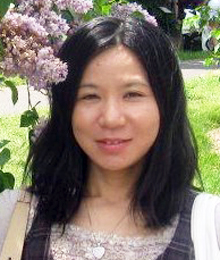
Satoko Amemori
JSPS Fellow (RPD)
My research interest is to elucidate the neural mechanisms underlying neural and psychiatric disorders, and to develop treatments for those disorders. Specifically, using neurophysiological, neuroanatomical, and genetic methods, I am studying cortico-basal ganglia circuits related to decision-making with anxiety in primates whose brain structures are similar to humans.
- Biography
- Satoko received her phD degree in medicine at Hokkaido University Graduate School of Medicine (2007). She moved to the US and worked as a postdoctoral associate (2009) then a research scientist (2014) at McGovern Institute for Brain Research, MIT (2009). She moved back to Japan and worked as a researcher at Primate Institute, Kyoto university (2020).
Doctoral student
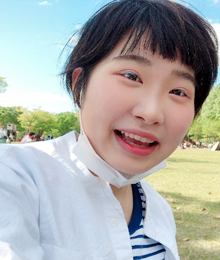
Jungmin Oh
Doctoral student
Motivation: What drives us to act? I am currently focusing on the primate ventral striatum(vStr), which are thought to regulate motivation. Particularly, I tried to examine the vStr neuronal activities under motivational conflict situation such as approach-avoidance (Ap-Av) conflict (e.g., Would you get a job offer with high salary but heavy work?) and a causal influence of the vStr activity in motivation.
- Biography
- In the research theme of epigenetics using a model plant Arabidopsis thaliana, she received a bachelor's degree at Seoul National University (Seoul, Republic of Korea) in 2017. After that, she entered the Department of Biological Sciences (Primate Research and Wildlife) of Graduate School of Science, Kyoto University in 2018 as a Japan government (MEXT)-sponsored international student. Since 2018, she has belonged to Dr. Takada’s LAB (Primate Research Institute, Aichi) and received a master's degree in the research theme of a neurological function in Japanese macaques (2020) under the guidance of Dr. Amemori. Currently, she is continuing her doctoral course in Dr.Amemori Group at the ASHBi (Institute for the Advanced Study of Human Biology, Kyoto) at Kyoto University.
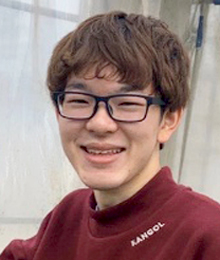
Ryo Ito
Doctoral student
We often change our behavior depending on our emotions. What kind of brain function affects these emotional fluctuations? My current research interests include both experimental and theoretical aspects of the influence of emotion on behavior.
- Biography
- Ryo Ito graduated from Tohoku University and obtained B.S. (2021). He entered Department of Systems Science, Graduate School of Informatics, Kyoto University, and conducts his research at Amemori Group, ASHBi.


